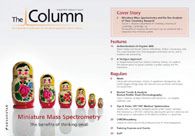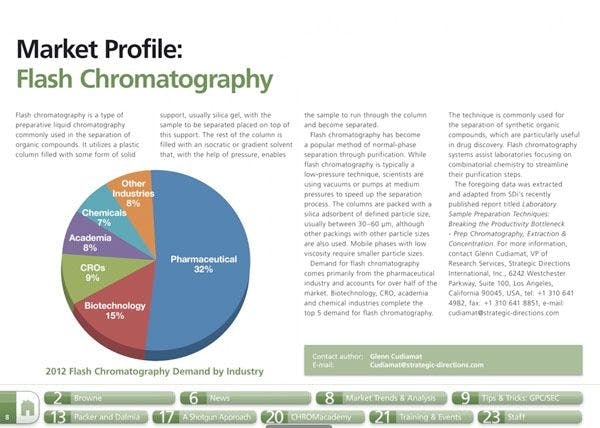AB Sciex and Leco support metabolomics
AB Sciex (Massachusetts, USA) and Leco (Michigan, USA) have formed a co-marketing partnership to provide support for researchers working in metabolomics in Europe and North America.
AB Sciex (Massachusetts, USA) and Leco (Michigan, USA) have formed a co-marketing partnership to provide support for researchers working in metabolomics in Europe and North America. Metabolomics researchers often use a systems biology approach that requires both liquid chromatography–mass spectrometry (LC–MS) and gas chromatography–mass spectrometry (GC–MS).
“We interact with metabolomics researchers all over the world, and we understand that there are times when metabolomics researchers want to use both GC–MS and LC–MS,” said Aaron Hudson, Senior Director, Academic and Omics Business, AB Sciex. Hudson added that the joint “bundles “ from AB Sciex and Leco provide users with improved felxibility in chromatography while obtaining the rich information that MS–MS delivers.”
Jeffrey Patrick. Director of Marketed Technologies at Leco, said his company’s GC–MS technologies complement the AB Sciex offerings and the combined portfolios offer expertise, services and support for metabolomics researchers.
The companies will offer “bundled” solutions for researchers requiring both separations. The application and service support teams from each company will work together.For more information please visit: www.leco.com or www.absciex.com
This story originally appeared in The Column. Click here to view that issue.

Regulatory Deadlines and Supply Chain Challenges Take Center Stage in Nitrosamine Discussion
April 10th 2025During an LCGC International peer exchange, Aloka Srinivasan, Mayank Bhanti, and Amber Burch discussed the regulatory deadlines and supply chain challenges that come with nitrosamine analysis.












